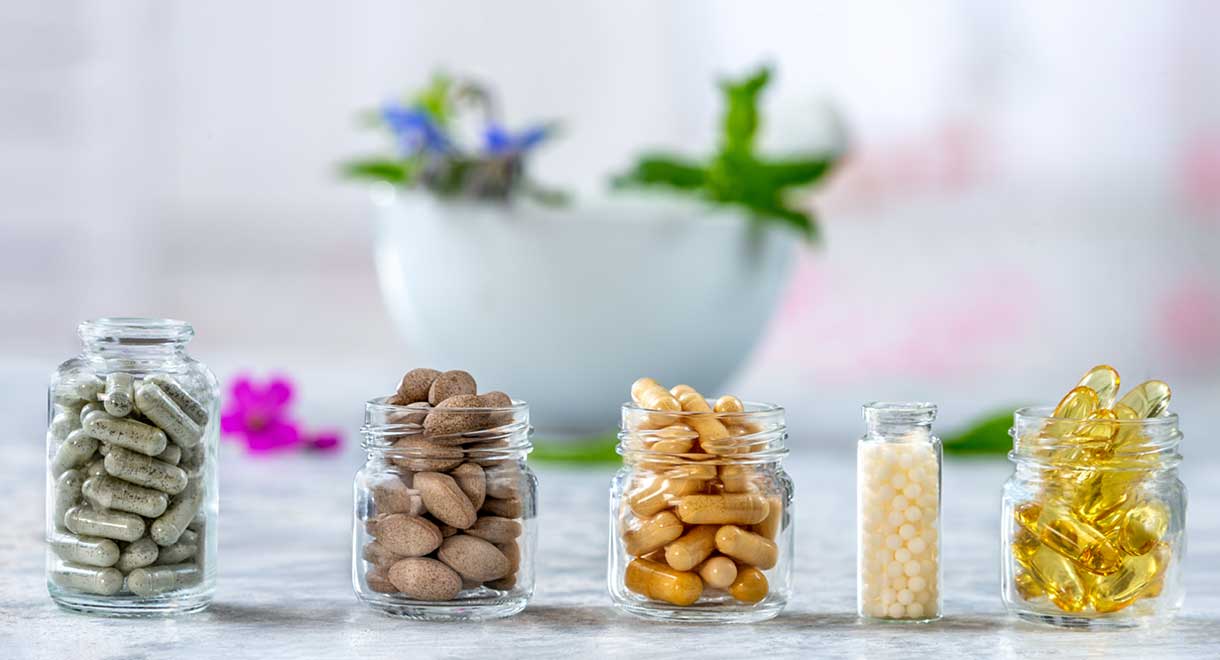Talking Supplements With Rossco
Dr Sandra Cabot and Rossco talk about nutritional supplements and how they can benefit us.
Listen to my podcast and leave a comment below if you have any questions.
ROSSCO: As promised, Dr Sandra Cabot! Good morning!
DR CABOT: Hi, Rossco.
ROSSCO: How’re you And we were just chatting before about whether people need to take supplements. A lot of people are confused, aren’t they, Rossco?
ROSSCO: They sure are. I am a person that takes supplementary vitamins and minerals.
DR CABOT: Yeah. Let’s look at the good reasons for that. First of all, not many people have a perfect diet. Secondly, a lot of people don’t absorb all the vitamins and minerals from their food. If they have gut problems, they might have leaky gut, they might have gastritis, they might have weak digestive enzymes, they may lack stomach acid. And I see a lot of nutritional deficiency. We test people and you’d be surprised. People who think they have a healthy diet, we often see profoundly deficient levels of vitamin D, iodine, or zinc and selenium. So, people don’t get what they need from their diet, in many cases. That’s what we’ve been testing over quite a few years.
The other thing is, our soils aren’t what they used to be. There’s a lot of patchy soils in this world, where mineral deficiencies are very common.
And the other thing, people put their food in a microwave, they’ll destroy some of the vitamins. They won’t destroy minerals because they’re very stable. But you’ll destroy a lot of the vitamins. That’s why it’s good to eat fresh fruits and vegetables that haven’t been cooked, as well. You don’t just want to have cooked food all the time.
And you’re living in a world where there’s so much pollution today. There’s so many chemicals in our environment now. Plastics, packaging in food. You can’t escape chemicals today. So, your body needs extra minerals to help your liver detoxify it. So, you can see there’s many reasons that taking supplements can be beneficial.
People can go and have a test with their doctor. They can go and have a blood test to check their vitamin D, their zinc, their magnesium. Sometimes, you’ll find you can be in the normal range of a blood test, but you might be at the bottom of the normal range. And that’s not necessarily ideal either, for people who want to have a stronger immune system or they may not be feeling as well as they would like. They want to get their levels up higher than just being in the normal range. Towards the upper limit of the normal range to see if that makes a difference.
ROSSCO: Of course. Now when they’re sourcing the compounds, shall we say, are they organically sourced? I know a lot of people feel, “Well, they’re just modified chemicals.” From my personal point of view, there are so many great producers of supplementary vitamins.
DR CABOT: Magnesium is magnesium. You can get different types of salt, magnesium oxide, magnesium chelate, magnesium glycinate, magnesium phosphate. But what you’re after is the magnesium. Magnesium is magnesium is magnesium. And when you get it from your diet, it’s still the same thing. So being synthetic doesn’t mean anything. Selenium. Well, selenium is the same. And vitamin C is vitamin C is vitamin C. And you need it, whether it’s made in laboratory or whether it comes from food produce. And you got to think about this. A lot of the food produce has been in cold storage. Or when you cook food, you destroy the vitamin C. So that argument of “Oh, it’s all synthetic.” Well, that’s ridiculous. It doesn’t mean anything. Of course, things are made in a laboratory. They are synthesized in a laboratory. But the end product is exactly the same as what you get in the food. You may not get all the associated factors. Like if you have an orange, you’ll get vitamin C with bioflavonoids, particularly if you eat the white pith. So, you’ll get the other cofactors that work with the vitamin C. But that’s not imperative. What your body really needs is the vitamin C. So, these critical nutrients can be easily synthesized in a laboratory and there are pure than you just getting the pure vitamin C, or the pure selenium, or the pure magnesium, or the pure vitamin D. And it’s bioidentical to what you would get in a food. It’s tested. These things are tested for any contaminants.
ROSSCO: So, it’s a safer way of having it anyway.
DR CABOT: I mean, look at the supplements that are made by Blackmores, or Thompson’s, or Cabot Health. They’re all tested. They don’t allow raw materials that have any contamination.
ROSSCO: That is excellent news. And I think that’s very responsible for us to have taken just a different angle on life today. Because those things are affecting our immune system and making it stronger to resist any kind of virus.
DR CABOT: Well, if you have nutritional deficiencies of magnesium, iodine, zinc, selenium, vitamin D, vitamin C, you can develop serious health problems.
ROSSCO: There you go.
DR CABOT: These things will greatly increase your risk of cancer, viral infection, osteoporosis. I mean, these things are critical to prevent disease. And so, just relying on your diet alone, well, if you have a perfect diet, fantastic! I haven’t met anyone who does. And a lot of people don’t absorb all these things from their diet. I see people with critical nutritional deficiencies and Rossco, they don’t have a clue they’ve got them.
ROSSCO: There you go! Alright, that can be with any one of us too, anyone. We just need to check on everything.
As always, Dr Sandra Cabot, you are wonderful. Thank you again.
DR CABOT: That’s my pleasure, Rossco. And stay healthy, everyone.
ROSSCO: Yes, we promise.


Leave A Comment